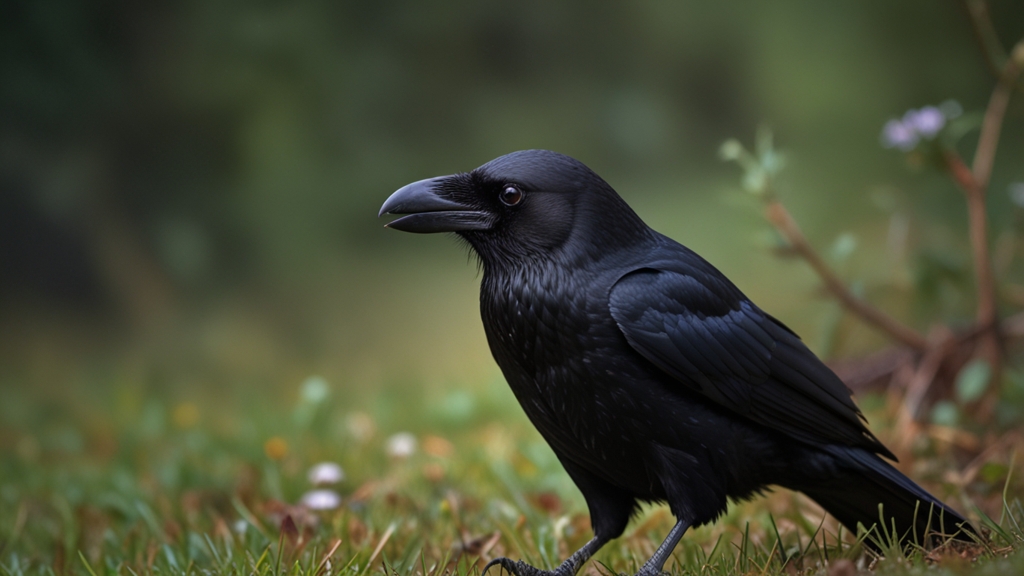The Hidden Intelligence of Crows: The Brainiacs of the Bird World
When we think about intelligent animals, our minds often drift to dolphins, chimpanzees, or even dogs. Rarely do birds take center stage in such discussions, with the notable exception of one particular avian genus: Corvus, which includes crows, ravens, and magpies. As it turns out, crows are among the most intelligent creatures on the planet, exhibiting cognitive abilities that often rival those of primates. This recognition has not only amazed ornithologists but also jettisoned birds into the broader conversation about animal intelligence.
Tool Usage
One of the most astounding displays of crow intelligence is their ability to use tools. Unlike most other animals, crows have demonstrated the ability to use sticks and other objects to retrieve food from hard-to-reach places. This was famously demonstrated in a series of experiments by researchers at Oxford University who observed New Caledonian crows creating and using tools to extract insects from wood. Such behavior indicates not only the ability to use existing objects as tools but also the skill to modify materials to better serve their needs—traits previously considered exclusive to humans and certain primates.
Complex Problem Solving
Crows are not just good at using tools; they excel at solving complex problems. A study published in the journal Science demonstrated that crows could understand the concept of water displacement. In the experiment, crows were given a small container of water with a floating treat out of reach. The crows used stones to raise the water level, bringing the treat within range. This task required a level of understanding that young children typically do not grasp until they are about seven years old.
"Scientific research has shown that crows have the ability to plan for future events and even hold rudimentary forms of grudges. Such sophisticated behaviors showcase a depth of intelligence that forces us to rethink what we know about cognitive capabilities in animals."
Social Intelligence and Communication
Crows are highly social animals with complex family structures and intricate methods of communication. They have been observed holding "funerals" for deceased members of their group, gathering around the dead and cawing loudly as if mourning their loss. This behavior suggests a form of social intelligence and emotional depth often not attributed to birds.
Additionally, crows are able to recognize human faces and even communicate this information to other crows. Studies have shown that crows can hold grudges against specific humans who have wronged them and will instruct other crows in their community to avoid or harass these individuals. This is indicative of advanced memory and teaching capabilities.
"Their aptitude for facial recognition and social learning signifies that crows possess a level of intelligence that is both unique and sophisticated, challenging the traditional hierarchy of animal intellect."
Future Research
Given the impressive array of abilities demonstrated by crows, future research aims to further understand the extent of their cognitive prowess. Ongoing studies continue to explore their problem-solving capabilities, social interactions, and even their potential for learning human language and numbers. As we delve deeper into the minds of these feathered geniuses, it’s becoming increasingly clear that the intelligence of crows is not just about survival but also about adaptability and complexity of thought.
As research progresses, crows may well become a key species in understanding the evolution of intelligence across the animal kingdom. The recognition of their capabilities urges us to reconsider our perceptions of intelligence, ultimately broadening our appreciation for the diverse and intricate minds that inhabit our planet.
"Crows challenge us to expand our definitions of intelligence, embracing a more inclusive view that appreciates the diverse cognitive landscapes of the animal world. As we continue to study these remarkable birds, they may offer invaluable insights into the nature of intelligence itself."











